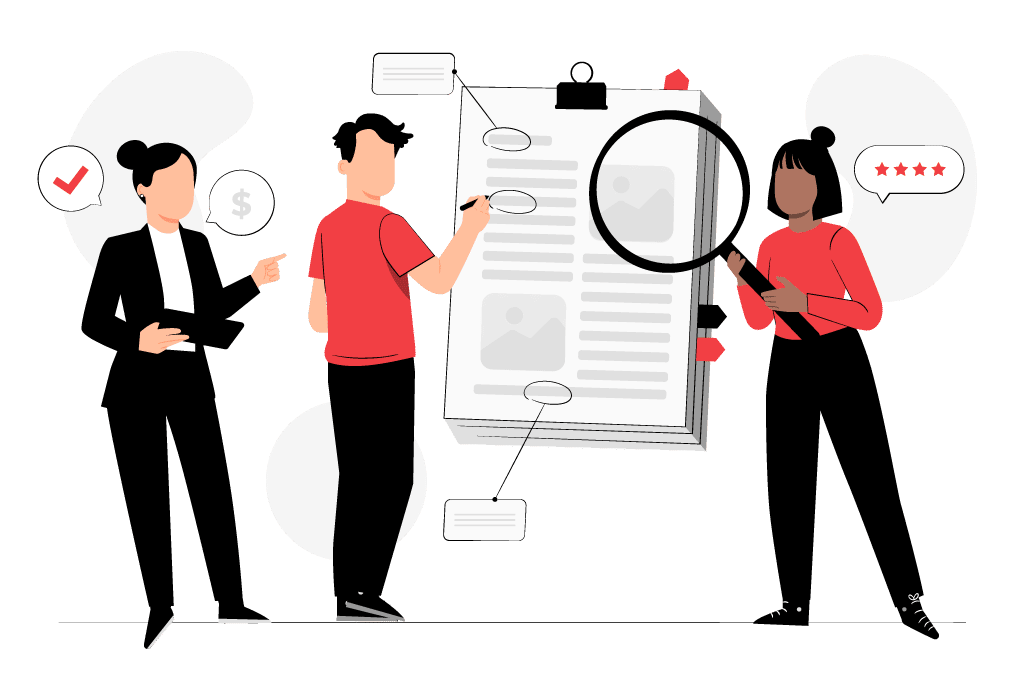In today’s rapidly evolving financial landscape, the role of an Investment Banking Analyst holds immense significance. As HR professionals and CXOs navigate the competitive realm of recruitment, understanding the latest trends in this field becomes crucial. The investment banking sector continues to witness a surge in demand for talented individuals adept at driving financial analysis, strategic decision-making, and client advisory services.
With analytics taking center stage, it has become essential to identify candidates with a strong foundation in data-driven insights, enabling them to navigate complex market dynamics and capitalize on emerging opportunities. In this context, designing interview questions that effectively assess an Investment Banking Analyst’s skills and aptitude becomes paramount. Let us delve into the key aspects and industry insights that can help you identify the best talent for this critical role.
Here are the top 60 Investment Banking Analyst interview questions to ask job applicants:
15 general interview questions for the Investment Banking Analyst
- Can you explain the role and responsibilities of an Investment Banking Analyst?
- How do you stay updated with the latest market trends and industry developments?
- Walk me through the typical process of conducting a financial analysis for a potential investment opportunity.
- Can you provide an example of a complex financial model you have built and explain its purpose?
- How do you approach valuing a company for potential mergers and acquisitions?
- What factors do you consider when evaluating the financial health and performance of a company?
- How do you assess the risks associated with a particular investment opportunity?
- Can you describe a time when you faced a challenging deadline and how you managed to meet it effectively?
- How do you prioritize tasks and manage multiple projects simultaneously?
- Can you explain the role of due diligence in investment banking and provide an example of how you conducted due diligence on a deal?
- What strategies do you employ to build and maintain relationships with clients?
- How do you handle confidential information and ensure data privacy in your work?
- Can you share an experience where you had to work collaboratively with a team to achieve a common goal?
- How do you stay organized and manage time effectively in a fast-paced investment banking environment?
- What qualities and skills do you possess that make you well-suited for a career in investment banking?
5 sample answers to general interview questions for the Investment Banking Analyst
- Can you explain the role and responsibilities of an Investment Banking Analyst?
look for: Look for candidates who can provide a clear understanding of the key responsibilities of an Investment Banking Analyst, such as financial analysis, market research, deal execution support, and client communication.
Example answer: “As an Investment Banking Analyst, my primary responsibilities would involve conducting comprehensive financial analysis, including building complex financial models, performing valuation exercises, and analyzing industry trends. I would also be involved in market research, assisting in the execution of deals, preparing pitch materials, and maintaining client relationships.”
- How do you stay updated with the latest market trends and industry developments?
look for: Look for candidates who demonstrate proactive efforts in staying informed about the financial markets, industry news, and emerging trends. They should mention specific sources or strategies they utilize to stay updated.
Example answer: “To stay updated with market trends and industry developments, I actively follow financial news outlets, read research reports, and participate in industry conferences and webinars. Additionally, I engage in networking with industry professionals to gain insights and perspectives. By subscribing to relevant newsletters and utilizing financial data platforms, I ensure that I am well-informed about the latest happenings.”
- Walk me through the typical process of conducting a financial analysis for a potential investment opportunity.
look for: Look for candidates who can articulate a structured approach to financial analysis, starting from gathering relevant data to interpreting the results and making informed recommendations.
Example answer: “When conducting financial analysis for an investment opportunity, the first step is to gather relevant financial data and company information. I then assess the company’s historical performance, analyze its financial statements, and calculate key financial ratios. I also consider industry benchmarks and market trends to evaluate the company’s position. Finally, I interpret the results, identify risks and opportunities, and prepare a comprehensive investment recommendation backed by data-driven insights.”
- How do you approach valuing a company for potential mergers and acquisitions?
look for: Look for candidates who demonstrate a strong understanding of valuation methodologies such as discounted cash flow (DCF), comparable company analysis, and precedent transactions. They should also emphasize the importance of thorough due diligence.
Example answer: “When valuing a company for potential mergers and acquisitions, I employ a combination of valuation methodologies. I utilize discounted cash flow analysis to assess the present value of the company’s expected future cash flows. Additionally, I conduct comparable company analysis by benchmarking the company’s financial metrics against industry peers. I also consider precedent transactions in the sector to gain insights into potential valuation ranges. Thorough due diligence on the target company’s financials and industry landscape is essential for an accurate valuation.”
- How do you assess the risks associated with a particular investment opportunity?
look for: Look for candidates who demonstrate a systematic approach to risk and assessment, including the identification, analysis, and mitigation of risks. They should also emphasize the importance of considering both financial and non-financial risks.
Example answer: “To assess the risks associated with an investment opportunity, I start by identifying potential risks, such as market volatility, regulatory changes, and operational challenges. I then conduct a thorough analysis of each risk, evaluating its potential impact and likelihood of occurrence. I consider financial risks like liquidity, leverage, and credit risk, as well as non-financial risks like reputational risk and strategic alignment. Finally, I develop risk mitigation strategies, such as diversification, hedging, and contingency plans, to address and manage the identified risks.”
15 behavioral interview questions for an Investment Banking Analyst
- Tell me about a time when you had to work under tight deadlines in a high-pressure environment. How did you prioritize tasks and ensure timely completion?
- Describe a situation where you had to analyze a complex financial problem. How did you approach it, and what steps did you take to arrive at a solution?
- Can you give an example of a time when you had to handle confidential information securely? How did you maintain data privacy and ensure the information remained confidential?
- Share a situation where you faced a disagreement or conflict within a team while working on a project. How did you handle it, and what steps did you take to resolve the conflict?
- Describe a time when you had to present complex financial information to a non-technical audience. How did you ensure effective communication and understanding?
- Tell me about a challenging project or deal you worked on. How did you manage the complexities and ensure successful execution?
- Share an example of a time when you had to adapt to sudden changes or unexpected circumstances in a project. How did you handle the situation and maintain project progress?
- Can you describe a situation where you had to manage multiple tasks simultaneously? How did you prioritize, stay organized, and ensure timely completion?
- Tell me about a time when you had to collaborate with individuals from diverse backgrounds or teams. How did you foster teamwork and overcome any challenges?
- Describe a situation where you identified a potential risk in a deal or investment opportunity. How did you assess the risk and propose mitigation strategies?
- Share an example of a time when you had to take the initiative to improve a process or streamline a workflow. How did you identify the opportunity and implement the necessary changes?
- Can you describe a time when you had to handle competing priorities from multiple stakeholders? How did you manage their expectations and ensure successful outcomes?
- Tell me about a time when you faced a setback or failure in a project. How did you respond to it, and what did you learn from the experience?
- Describe a situation where you had to provide exceptional client service or handle a challenging client request. How did you manage the situation and ensure client satisfaction?
- Share an example of a time when you had to work on a project with limited resources or tight budget constraints. How did you optimize resources and deliver quality results?
5 sample answers to behavioral interview questions for the Investment Banking Analyst
- Tell me about a time when you had to work under tight deadlines in a high-pressure environment. How did you prioritize tasks and ensure timely completion?
look for: Look for candidates who can demonstrate their ability to handle pressure and effectively manage deadlines. They should mention specific strategies or techniques they employed to prioritize tasks and meet deadlines.
Example answer: “During my internship at XYZ Investment Bank, I worked on a time-sensitive project that required me to analyze financial data and prepare a comprehensive report within a tight deadline. To ensure timely completion, I created a detailed project plan, breaking down the tasks into smaller, manageable parts. I prioritized critical tasks, collaborated with team members to delegate responsibilities, and maintained constant communication to track progress. By setting milestones, managing my time efficiently, and being proactive in seeking help when needed, I was able to deliver the project before the deadline.”
- Describe a situation where you had to analyze a complex financial problem. How did you approach it, and what steps did you take to arrive at a solution?
look for: Look for candidates who can demonstrate their analytical skills and problem-solving abilities. They should provide a structured approach to problem-solving, including gathering information, conducting analysis, and reaching a logical solution.
Example answer: “In my previous role, I encountered a complex financial problem related to evaluating a company’s investment potential. I began by gathering relevant financial statements, industry research, and market data. I then conducted a comprehensive financial analysis, utilizing various valuation methods and performing sensitivity analyses. Additionally, I collaborated with team members to brainstorm alternative scenarios and potential risks. By synthesizing the findings, considering both quantitative and qualitative factors, and consulting senior analysts, I was able to arrive at a well-informed investment recommendation that addressed the complex financial problem.”
- Can you give an example of a time when you had to handle confidential information securely? How did you maintain data privacy and ensure the information remained confidential?
look for: Look for candidates who understand the importance of confidentiality and demonstrate their ability to handle sensitive information. They should emphasize their adherence to data privacy protocols and their experience in maintaining confidentiality.
Example answer: “During my tenure at ABC Investment Firm, I had the responsibility of handling confidential client data and sensitive financial information. To ensure data privacy, I strictly followed the firm’s security protocols, such as utilizing encrypted communication channels and password-protected systems. I maintained physical security by storing documents in locked cabinets and shredding confidential papers after use. Additionally, I exercised caution when discussing sensitive matters, ensuring conversations took place in private and confidential settings. By diligently adhering to the firm’s data privacy policies, I successfully maintained the confidentiality of sensitive information throughout my tenure.”
- Share a situation where you faced a disagreement or conflict within a team while working on a project. How did you handle it, and what steps did you take to resolve the conflict?
look for: Look for candidates who can effectively manage conflicts and demonstrate their interpersonal skills. They should describe a situation where they remained composed, actively listened to others, and found a mutually beneficial resolution.
Example answer: “During a team project at my previous organization, we encountered a disagreement regarding the allocation of responsibilities and the project timeline. To address the conflict, I initiated an open discussion, allowing each team member to express their concerns and perspectives. I actively listened to their viewpoints, acknowledging the validity of their concerns. We collaboratively identified the underlying issues and proposed alternative solutions. Through effective communication and compromise, we reached a consensus on revised responsibilities and a realistic project timeline. By maintaining a positive and constructive approach, we were able to resolve the conflict and successfully complete the project.”
- Describe a time when you had to present complex financial information to a non-technical audience. How did you ensure effective communication and understanding?
look for: Look for candidates who can communicate complex financial concepts in a clear and concise manner. They should demonstrate their ability to adapt their communication style to suit the audience and explain technical information in a relatable way.
Example answer: “In my previous role, I was tasked with presenting a complex financial analysis report to the senior management team, which consisted of individuals from various departments with limited financial expertise. To ensure effective communication, I focused on simplifying the information without compromising its accuracy. I used visual aids, such as charts and graphs, to present key findings in a visually appealing manner. Additionally, I prepared a concise executive summary highlighting the most important points. During the presentation, I actively engaged the audience, encouraged questions, and provided relatable examples to enhance understanding. By tailoring my communication style and making the content accessible, I received positive feedback from the non-technical audience and effectively conveyed the financial information.”
15 personality interview questions for the Investment Banking Analyst
- How do you handle working in a fast-paced and high-pressure environment?
- Describe a situation where you had to demonstrate attention to detail and accuracy in your work.
- How do you stay motivated and maintain a strong work ethic during challenging projects or long working hours?
- Can you describe a time when you had to take initiative and show a proactive approach to problem-solving?
- How do you handle feedback and constructive criticism? Can you give an example of a time when you received feedback and how you utilized it to improve?
- Describe a situation where you had to manage multiple competing priorities. How did you prioritize and ensure effective time management?
- How do you stay updated with industry trends and developments? Can you give an example of how you applied this knowledge in your work?
- Can you describe a time when you had to collaborate with individuals from diverse backgrounds or teams? How did you navigate cultural or personality differences to achieve common goals?
- How do you handle ambiguity and make decisions when faced with incomplete or uncertain information?
- Describe a situation where you had to demonstrate resilience and perseverance in the face of challenges or setbacks.
- Can you give an example of a time when you demonstrated strong problem-solving skills by thinking outside the box?
- How do you approach building and maintaining professional relationships with clients and stakeholders?
- Describe a situation where you had to work on a team project with individuals who had differing opinions or work styles. How did you foster teamwork and ensure a cohesive collaboration?
- How do you stay organized and manage your workload effectively? Can you provide an example of a time when you successfully juggled multiple tasks?
- Describe a situation where you had to adapt to changes in project requirements or priorities. How did you handle the changes and ensure successful project outcomes?
5 sample answers to personality interview questions for Investment Banking Analyst
- How do you handle working in a fast-paced and high-pressure environment?
look for: Look for candidates who can demonstrate their ability to thrive in a fast-paced and high-pressure environment. They should mention strategies they employ to stay focused, organized, and productive under pressure.
Example answer: “I thrive in fast-paced and high-pressure environments as I enjoy the energy and challenges they bring. I prioritize tasks by urgency and importance to handle the pressure, creating a structured plan to ensure timely completion. With my banking software development expertise, I streamline processes and optimize workflows to enhance efficiency. I maintain open communication with my team, providing regular updates and seeking support when needed. I also practice self-care by maintaining a healthy work-life balance, including exercise and relaxation time. By staying organized, managing my time effectively, and maintaining a positive mindset, I can perform at my best even in demanding situations.” I prioritize tasks by urgency and importance, creating a structured plan to ensure timely completion.
- Can you describe a time when you had to take initiative and show a proactive approach to problem-solving?
look for: Look for candidates who can demonstrate their proactive nature and willingness to take ownership of challenges. They should provide an example where they identified a problem, took the initiative to find a solution, and achieved positive outcomes.
Example answer: “During a complex project, we faced an unexpected roadblock that was affecting our progress. Rather than waiting for instructions, I took the initiative to gather the necessary data and analyzed the issue. I proposed an alternative approach, highlighting the potential benefits and risks. I presented my findings to the team and sought their input to refine the solution further. Through this proactive approach, we successfully resolved the roadblock, and the project was back on track. Taking initiative and actively seeking solutions is something I consider essential in problem-solving.”
- How do you handle feedback and constructive criticism? Can you give an example of a time when you received feedback and how you utilized it to improve?
look for: Look for candidates who demonstrate their ability to accept feedback positively, reflect on it, and utilize it for personal and professional growth. They should provide an example where they received feedback, acted upon it, and showed improvement.
Example answer: “I value feedback and see it as an opportunity for growth. In a previous role, I received feedback on my presentation skills, specifically regarding my body language and vocal clarity. Instead of getting defensive, I thanked the person for their feedback and took it as a chance to improve. I sought resources and practiced techniques to enhance my presentation skills. I also requested additional feedback and guidance from colleagues who excelled in this area. Over time, I noticed a significant improvement in my presentations, and I received positive feedback from both colleagues and clients. I believe feedback is crucial for personal development, and I actively seek it to continuously improve my skills.”
- Describe a situation where you had to collaborate with individuals from diverse backgrounds or teams. How did you navigate cultural or personality differences to achieve common goals?
look for: Look for candidates who demonstrate their ability to work effectively with diverse teams. They should provide an example where they embraced diversity, effectively communicated, and fostered teamwork to achieve shared objectives.
Example answer: “In a recent project, I collaborated with a team consisting of members from different cultural backgrounds and varying work styles. To navigate the differences, I first took the time to understand and appreciate their perspectives, recognizing the value each person brought to the table. I facilitated open and inclusive discussions, ensuring everyone had an opportunity to voice their ideas and concerns. We established common goals and agreed upon a communication framework that accommodated different communication preferences. By fostering a culture of respect, actively listening, and being flexible, we leveraged our diverse strengths and successfully achieved our project milestones.”
- How do you stay organized and manage your workload effectively? Can you provide an example of a time when you successfully juggled multiple tasks?
look for: Look for candidates who demonstrate effective organizational skills and the ability to manage multiple tasks simultaneously. They should provide an example where they effectively prioritized tasks, maintained productivity, and delivered quality results.
Example answer: “To stay organized and manage my workload effectively, I utilize various strategies. I start by creating a comprehensive task list, breaking down projects into smaller actionable steps. I prioritize tasks based on their deadlines and importance. I also set realistic timelines for each task and allocate dedicated time blocks for focused work. Additionally, I leverage project management tools to track progress and ensure nothing falls through the cracks. In a recent situation, I successfully juggled multiple tasks by employing these strategies. Despite the workload, I maintained clear communication, met deadlines, and delivered quality results. This ability to manage multiple tasks simultaneously is a key strength that allows me to thrive in a fast-paced environment.”
When should you use skill assessments in your hiring process for Investment Banking Analyst?
Skill assessments should be used in the hiring process for Investment Banking Analysts to ensure that candidates possess the necessary skills and competencies required for the role. These assessments provide objective and standardized measures of a candidate’s abilities, allowing employers to make informed decisions and identify the most qualified candidates.
Assessments are important because they go beyond resumes and interviews, providing concrete evidence of a candidate’s proficiency in specific skills relevant to investment banking. They help validate the claims made in resumes and interviews and provide a fair and consistent evaluation of candidates’ capabilities. By incorporating skill assessments, hiring managers can effectively gauge a candidate’s technical knowledge, analytical abilities, financial modeling skills, problem-solving aptitude, attention to detail, and other critical competencies.
Various assessments can be used to evaluate the skills of Investment Banking Analyst candidates. Some commonly used assessments include financial modeling tests, case studies, numerical reasoning tests, behavioral assessments, and situational judgment tests. These assessments can be administered online or in person and provide valuable insights into a the the candidate’s ability to handle real-world scenarios, make informed decisions, and demonstrate the skills necessary for success in the field of investment banking.
In summary, skill assessments play a crucial role in the hiring process for Investment Banking Analysts by objectively measuring candidates’ abilities and providing valuable insights into their skills and competencies. By incorporating assessments, employers can make more informed hiring decisions and ensure that they select candidates who possess the requisite skills for the demanding and specialized role of an Investment Banking Analyst.
Use our interview questions and skill tests to hire a talented Investment Banking Analyst
Unlock the potential of your hiring process with Testlify’s comprehensive skill assessments and interview questions specifically designed for Investment Banking Analyst.
Our extensive test library offers a wide range of assessments, including cognitive function, personality, situational judgment, programming, and more. By leveraging these assessments, you can objectively evaluate candidates’ abilities, ensuring you shortlist the most talented individuals efficiently.
To further enhance your hiring process, we invite you to book a free 30-minute live demo. Our expert team will guide you through the platform, showcasing relevant skill tests tailored to your hiring needs. With our support, you can streamline candidate selection, saving valuable time and resources.
Ready to find the perfect fit for your Investment Banking Analyst role? Testlify provides the tools you need to make informed hiring decisions. Explore our skill assessments and interview questions today to uncover exceptional talent for your team.








